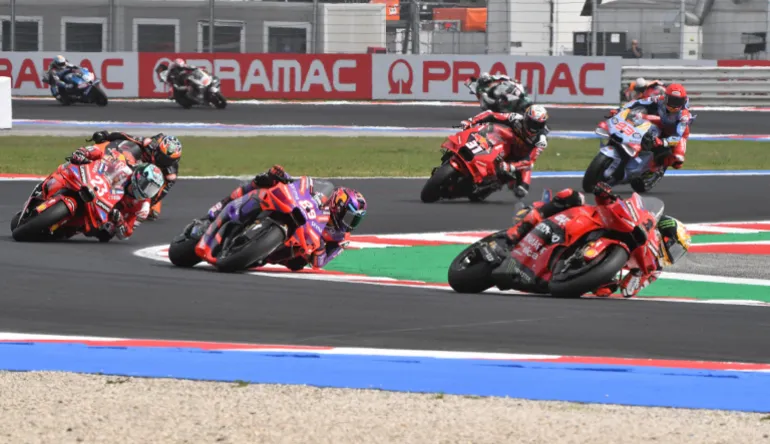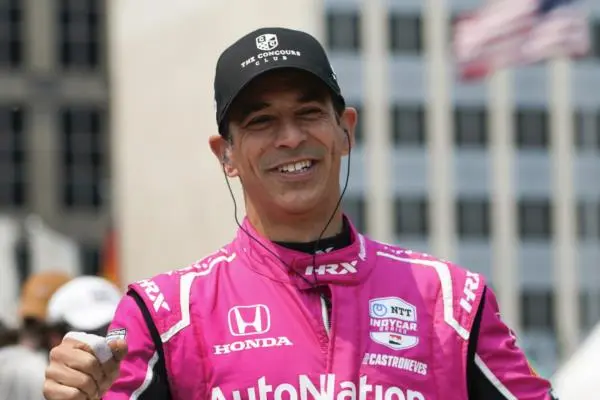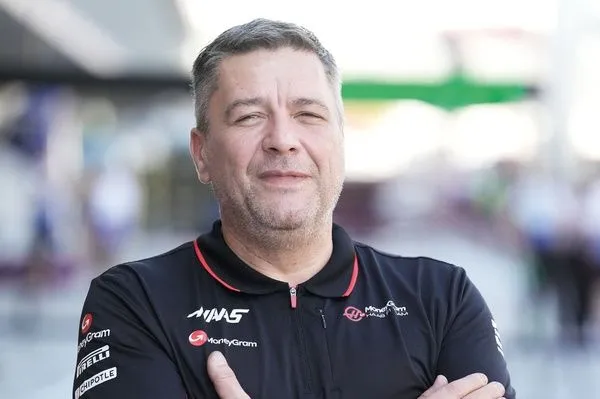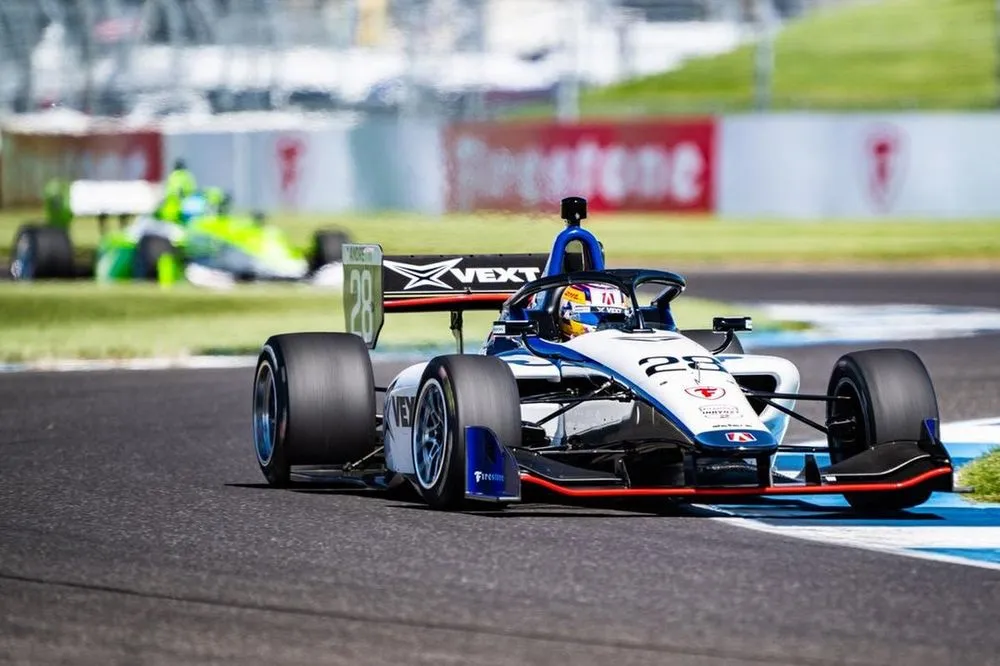"When you win 10 grands prix and you are still 24 points behind, something is wrong."
Complaints against a format by a rival who has failed to learn that format must always be read with careful caution. They are to be anticipated. But Francesco Bagnaia may well have a point when it comes to the significance of sprint events on the 2024 MotoGP championship battle.
To summarize the position heading into the last round, Bagnaia heads into the Barcelona weekend as a long chance despite having won 10 grands prix to the three wins of points leader Jorge Martin. The Spaniard's lead may be related to his seven wins in MotoGP's sprint races as well as multiple falls for Bagnaia on Saturdays.
To be clear, Bagnaia is making no excuses for his sprint travails. He is honest about things to the point that you have to consider his "something is wrong" assertion as a bit more than sour grapes.
"Jorge was just better on Saturdays this season and we have to say he did a really good job there," said Bagnaia following his latest Saturday tumble in Malaysia. He is also delighted to raise his cap to Martin's ability to find speed with minimal or zero preparation time.
"Yesterday Jorge just went straight on track and did a 1m56.996s, just like that," remarked Bagnaia with a snap of the fingers as he thought on Martin's record-breaking maiden run in Q2 at Sepang. "The speed with which he can adapt [to set a quick time] is something unbelievable."
Given that the sprints come earlier in the weekend, when Bagnaia is generally still fine-tuning his package, this phenomena has been a key component in Martin's Saturday points hauls. For one so realistic about the balance of power in the sprints, Bagnaia could possibly have avoided his current dilemma simply by taking a damage-limitation attitude on Saturdays.
With the benefit of hindsight, he would surely have settled with a few seconds and thirds instead of tumbling off. But his worst defeats came early in the season, when the picture - including his edge on Sundays – wasn't nearly so apparent.
But with all of that said, throughout 73 of MotoGP's 75 years, worrying about how to manage sprints was not a talent Bagnaia would have had to acquire. Winning grands prix – plus the rare TT in the Netherlands or the Isle of Man – was always what got you world championships. That is a crucial component of the history MotoGP honored with such pride at Silverstone this year. There is a case that the sprints have been a smack in the face to that legacy since they appeared in 2023.

Just to put Bagnaia's 10 grand prix wins in perspective, the only riders to have won 10 in a season in the top class – some of them several times – are Giacomo Agostini, Mick Doohan, Valentino Rossi, Casey Stoner and Marc Marquez. All of them went on to win the world title in the seasons in question.
Before we rise in fury on Bagnaia's behalf, though, observe that in percentage terms Bagnaia hasn't yet reached the level of his predecessors. Even excluding sprints, there are more grands prix every season currently than for any of those riders. In 1968, in reality, there were only 10 races and Agostini had a 100% record.
Should Bagnaia win in Barcelona, he'll have won 55% of this year's Sunday races, still a bit behind the lowest percentage in the 10+ club. That was Stoner's 2007 performance, when he won 10 of 18 races at 55.56%.
Let's factor in the sprints, just for fun. Despite all the spotlight on the points he has thrown away in that department, Bagnaia has still won six of them. That's just one fewer than Martin, which does somewhat call into question the common belief that the Spaniard is clearly the quickest guy on Saturdays.
It gives Bagnaia a total of 16 victories for the season, out of a potential 38 thus far: that's 42.1%. The Italian's defenders will joyfully observe that Martin's seven sprints and three grands prix add up to an overall winning percentage of 26.32%.
You may play with these data all the way until Christmas, speculating about what might have been when we take other finishers and retirements into consideration. I'm going to quit now. The system is what it is, and while Bagnaia has done more winning by any metric, he has simply thrown away too many points - largely on Saturdays.
The question is whether those Saturday blunders have been granted too much importance. Or, if you like, whether grand prix Sundays should be worth more — as per MotoGP history.
Well, firstly, it's in the name. If you know any French at all, you'll know that the grand prix of any country (or area or city) is intended to be the great prize. It arrived with the definite article: le grand prix. There was only one. Semantics aside, a longer race puts tire management into play - a skill many may assume a champion should have in their repertoire. Flat-out sprints don't test that.
So let's pretend something is actually "wrong" with the system. What to do with the Saturday sprints?
Introduced to MotoGP two years after they emerged in Formula 1 in 2021, the extreme view would be to reject them totally as a pointless attempt to replicate what the four-wheelers were doing.
Statisticians and many journalists might be happy for that, as sprints have given birth to all sorts of problems concerning records, statistics and choice of phrasing. Does 'race' mean grands prix alone, for example? Does 'Malaysian Grand Prix' refer to the full weekend or merely the Sunday race? More importantly, may these queries mislead and alienate fans who have better things to do than seek around for definitions?
Read Also: Acosta is taking over a long MotoGP race

Another item that could need a little audience research: might some fans walk away after being expected to devote Saturdays and Sundays in watching the race – and on an ever-growing number of weekends? Is there such a thing as too much? Most average individuals have lives outside of motorsport, a reality that decision-makers living in all-consuming paddocks would wish to consider.
On the other hand, Saturday sprints can only be an appeal for people weighing up weekend permits to attend events. You have to presume that they help sell such tickets, which is surely a reason against removing them totally.
A more practical strategy may be to go all-in on mimicking F1. MotoGP has differentiated itself by staging sprints at every single round whereas F1 stages them only at chosen events. In the first two years of F1 sprints, there were just three 'sprint weekends'. That has expanded to six in 2023 and 2024 - exactly a quarter of the racing weekends in this year's scenario.
Under this concept, sprints are considered as a particular bonus that doesn't detract from the primary story. They may always be swapped between sites, or alternatively reserved for historic, blue-riband courses like Jerez, Silverstone or Assen.
Another method to decrease the sprints' influence on the championship would be to rethink the scoring system. Again, MotoGP might follow F1's path here. Under the current F1 formula, a sprint win wins you eight points. That's less than a third of the 25 points a grand prix victory brings.
MotoGP also gives grand prix winners 25, but every time anybody wins a sprint, they walk away with approximately half that. Should a sprint win truly be worth 12 points?
Another approach may be to perform the sprints but eliminate them from the competition completely. That manner, you could still sell tickets on Saturdays and supply 'content' for dedicated fans who can't get enough while sending the others a clear message that these races are a non-essential bonus. An exhibition, if you like.
A brief race in which there is nothing to lose looks like a pleasant solution on paper. And if they enjoy a terrific concert, it's hard to see those ticket-holders grumbling that it didn't count toward a championship.
But would teams get into the spirit of it, with no points at stake? There's a concern that pragmatic engineers will prefer to consider non-points sprints as additional practice sessions. It's generally advisable to proceed with this proposal only after significant consultation with the rivals.
Another possibility would be to add something like a 'Sprint Cup' to MotoGP's broad array of titles. That way, there would still be something larger to fight for. It would be something a manufacturer's marketing staff could put their attention on if it doesn't quite work out at world championship grand prix level. That may have its commercial attraction.
After two years of the sprint format trial, there is no guilt in reviewing it. Bagnaia is unlikely to be the only individual who believes things is a touch out of balance under the existing arrangement. And, as we've shown, there are alternatives.
Let's remember that Bagnaia is among the sharpest and most analytical characters on the grid. He is also a real, fair athlete who will politely give his hand in loss, no matter what the format. He may have a specific prejudice when he declares something is "wrong", but his remarks are thoroughly studied and are not shouted in the heat of a moment. Perhaps MotoGP's powers-that-be ought to give them proper heed.




